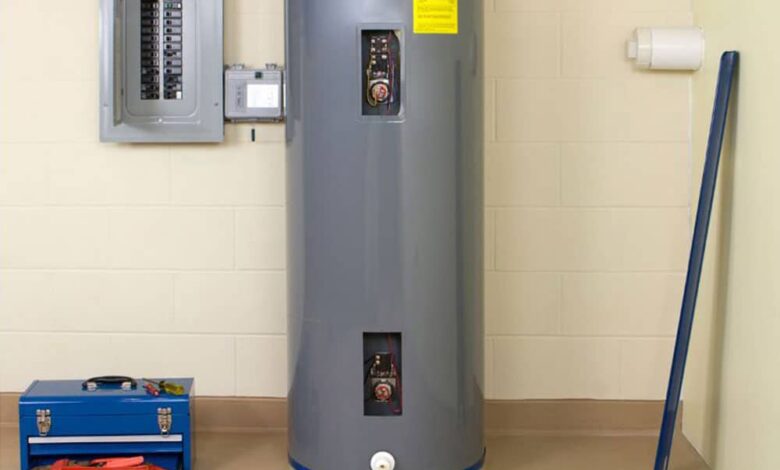Improve Efficiency with the Right Household Water Heater

Choosing the right household appliances not only makes daily tasks easier but can also save energy and reduce utility bills. Two items that play a big role in home comfort and convenience are fine china dinnerware and the household water heater. While fine china adds elegance to meals and special occasions, the right water heater improves home efficiency, providing reliable hot water without driving up energy costs. In this guide, we’ll focus on helping you find the best household water heater and explain how it supports efficient, comfortable living.
Understanding the Importance of a Reliable Household Water Heater
A household water heater is essential in modern homes, providing warm water for showers, cooking, cleaning, and heating systems. With the right model, you can ensure efficiency, reduce monthly energy bills, and enjoy a continuous supply of hot water whenever needed. When selecting a water heater, it’s important to consider both the size of your household and your specific water usage needs.
Key Factors to Consider When Choosing a Household Water Heater
Choosing the right water heater depends on a few key considerations. By taking the time to evaluate these factors, you’ll be better prepared to choose an efficient water heater that meets your household’s needs. Let’s look at some of the essential aspects:
1. Assessing the Energy Source for Your Water Heater
Household water heaters are typically powered by electricity, natural gas, or solar energy. Electric water heaters are often the most common choice, as they’re easy to install and work well in almost any location. However, natural gas heaters can be more energy-efficient, especially in colder climates, because they heat water quickly. Solar water heaters are ideal for eco-friendly homes and can save money on energy bills but may be costly upfront and require ample sunlight to operate efficiently.
2. Choosing the Right Size Based on Your Household’s Needs
The size of your water heater impacts both its efficiency and your comfort. If your water heater is too small, you may run out of hot water frequently. If it’s too large, you’ll waste energy heating water you don’t use. Consider how many people live in your home, and whether you frequently need large amounts of hot water, as in homes with a dishwasher or multiple showers. Larger families usually benefit from a tank-style heater with greater capacity, while smaller households might prefer a tankless model, which heats water on demand.
3. Tank vs. Tankless: Which Household Water Heater Is Better?
Traditional tank-style water heaters keep a reservoir of hot water ready for use. They’re reliable and can meet high demand, but they also use energy to maintain that temperature throughout the day. In contrast, tankless water heaters heat water only when needed, which can reduce energy costs over time. However, tankless models may struggle to supply hot water for multiple simultaneous uses, so be sure to consider your household’s needs before choosing.
4. Evaluating Water Heater Efficiency Ratings
Modern household water heaters come with energy efficiency ratings to help you understand their operating costs. Look for the Energy Star rating to ensure that your model meets standards for energy efficiency. Additionally, check the Energy Factor (EF) rating, which measures how efficiently the heater converts energy into hot water. A high EF rating means lower energy bills and better performance over time.
5. Considering the Installation and Maintenance Requirements
A household water heater is a long-term investment, so consider the installation and maintenance requirements. Traditional tank heaters may need more frequent maintenance to prevent sediment buildup, which can affect performance. Tankless heaters, though typically easier to maintain, may require specific plumbing and electrical setup for efficient operation. Professional installation ensures that your water heater operates safely and effectively, so it’s wise to budget for these services as part of your purchase.
How the Right Household Water Heater Contributes to Energy Savings
A properly chosen and installed household water heater can lead to significant energy savings. By reducing wasted energy and using hot water more efficiently, you’ll be able to keep utility costs low. Opting for a model that suits your household’s needs ensures that you’re not heating more water than necessary, reducing your environmental impact. Many modern water heaters include energy-saving features such as automatic shut-offs or timers, making it easier to manage hot water consumption.
Tips to Maximize Efficiency with Your Household Water Heater
Once you’ve selected the ideal water heater, you can take several steps to maximize its efficiency. Here are some practical tips for keeping your household water heater running smoothly:
- Insulate Your Water Heater: For tank-style heaters, consider adding an insulation blanket around the tank to reduce heat loss. This simple step can lower energy costs by keeping water warm for longer periods.
- Adjust the Thermostat Setting: Many water heaters are set to 140°F by default, but lowering the thermostat to 120°F can reduce energy usage without compromising comfort.
- Flush the Tank Regularly: Over time, sediment builds up in tank water heaters, which can reduce efficiency. Flushing the tank every six months helps maintain optimal performance.
- Repair Leaks Promptly: A leaking water heater can waste both water and energy. If you notice any signs of a leak, contact a professional to repair it as soon as possible.
- Consider Low-Flow Fixtures: Installing low-flow showerheads and faucets can reduce your hot water consumption, allowing your water heater to operate more efficiently.
FAQs
1. What’s the best type of water heater for energy efficiency?
For most households, a tankless water heater is the most energy-efficient choice because it only heats water on demand, reducing standby heat loss.
2. How often should I replace my household water heater?
Water heaters typically last between 8 to 12 years, depending on usage and maintenance. If your heater is older or has performance issues, it might be time to consider a replacement.
3. Can I install a household water heater myself?
While some homeowners may attempt DIY installations, it’s generally best to hire a professional to ensure safe, efficient operation and avoid potential hazards.
4. How much energy can I save by lowering my water heater’s thermostat?
Lowering the thermostat by 10°F can save you around 3-5% on energy costs. Setting it to 120°F is usually sufficient for household needs and reduces the risk of scalding.
5. Are tankless water heaters more expensive than traditional models?
Tankless water heaters often have a higher upfront cost but can save money in the long run due to their energy efficiency and lower operating costs.
Conclusion
Investing in the right household water heater is one of the best ways to enhance your home’s efficiency and comfort. By carefully evaluating energy sources, sizing, and other factors, you’ll find a model that meets your household’s hot water needs while keeping energy costs low. With regular maintenance and a few energy-saving strategies, your new water heater can provide reliable, cost-effective service for years to come. For additional guidance, consult resources such as the U.S. Department of Energy’s website, which offers insights into energy-efficient home appliances.



